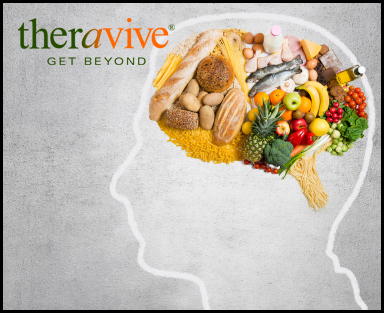 In the past few years mental health practitioners have become more aware of the connection between food, exercise and mental health. Research in these areas supports what some have known for years – we can manage and eliminate some of the more common mental health symptoms by changing what we eat and moving our bodies more.
In the past few years mental health practitioners have become more aware of the connection between food, exercise and mental health. Research in these areas supports what some have known for years – we can manage and eliminate some of the more common mental health symptoms by changing what we eat and moving our bodies more.
Are Food and Exercise Recommendations Really that Subversive?
I recently asked a medical doctor who is a board certified psychiatrist why I, a mental health practitioner of 25 years, am just learning about the many ways food intolerances like gluten and dairy can impact mental health. (This psychiatrist has included knowledge such as this into her practice for two decades.) Her response was that psychiatrists and others who included these recommendations as part of their treatment were considered radicals on the fringe of the medical community until recent years. In essence, they were forced ‘underground’ for these radical beliefs – meaning you would need to know someone to find them.
I know this is true, as I have heard and dismissed such information as not applicable to mainstream practice. So in reality, it isn’t that I am just hearing this for the first time – but the information is now ‘mainstream’ enough to be considered more credible. Perhaps information like this took longer to reach me because until six years ago I lived in a region of the country that lags behind in most things considered experimental, alternative or progressive, and excels in most things bad (infant mortality, domestic violence, kidney disease, diabetes, and other health conditions).
Some more progressive areas of the US practice this holistic mental health treatment. However, even community mental health providers in a city as large and forward-thinking as Denver, CO (where marijuana is now legal for recreation purposes) do not generally prescribe something as unorthodox as a specific diet and exercise to help with mental health conditions.
Some practitioners (me included) may recommend exercise to alleviate depression or anxiety, light therapy for seasonal depression and/or avoiding caffeine in the evening if you have sleep problems. Otherwise, if talk therapy doesn’t cure you, a trip to see the MD for a prescription is the norm. If you are wondering why, it is simple – liability.
Psychiatry and mental health treatment are based on the medical model which assumes there is a biological cause or brain pathology for mental disorders. Large pharmaceutical companies provide funding for most of the research that is conducted in the US. There is no way for the pharmaceutical companies to make big money from food and exercise, so there is not a lot of funding invested in proving the link between food and exercise and mental health conditions. The medical model dictates that treatment is generally medication, or in rare and severe cases, ECT, vagus nerve stimulation or deep brain stimulation.
Medical providers – therapists included – risk malpractice lawsuits if they prescribe treatments that are not supported by research. Talking to clients about supplements, nutrition and exercise are believed to fall under the auspices of dieticians or nutritionists. Mental health practitioners can be charged with practicing without a license if they venture too far into these areas, unless the practitioner (like this one) has specialized training in the area in addition to his/her specialty.

Why Now?
So, why now? How is it possible that the exercise, nutrition and mental health connection is suddenly being cast in a primary role? Several factors seem to be involved. President Obama’s focus on all things related to the brain may be a driving force – at least from a fiscal perspective. Alzheimer’s, brain and aging research appears to be center-stage. As people continue to live longer, we are seeing more money spent on research related to the brain – specifically memory and cognition. Neuroplasticity and other findings from heavily funded brain research apply to some more common mental health conditions.
There is also a bit of an uprising in the world about how our food is being genetically altered. This has resulted in more money being spent on research in that arena. Research about the effects of gluten have recently suggested that many who have gluten intolerance do not have full blown Celiac Disease, meaning GI symptoms are not required as part of the diagnosis. That information alone explained the symptoms of hundreds of thousands who had all of the gluten symptoms except GI distress.
The more we learned about these food allergy symptoms, we began to see overlap with mental health symptoms, such as depression, anxiety, concentration and memory problems. As a result of these and other societal influences, it appears that this is an idea whose ‘time has come’.
What You Need to Know About Food, Exercise and Mental Health
First of all, is it important to realize that prescription medications for mental health conditions do not cure the problem – they only minimize the symptoms. Only 50-65% of people who take medication for mental health conditions show improvement. However, the side effects of some psychotropic medications can be very serious – particularly those for chronic conditions like Schizophrenia, BiPolar Disorder and others. These reasons alone suggest that any holistic approaches that might be useful should also be explored with clients.
· One diet does not fit all. Talk to a nutritionist or medical provider to determine the best diet for you based on your needs.
· Exercise helps manage and/or prevent anxiety and depression. Talk to your medical provider to see if this might be helpful in managing your symptoms.
· Many foods and food additives have been linked to inflammation and other physical reactions in the body that affect mental health, cognition and memory.
· Depression, anxiety and ADHD/ADD (Attention Deficit Hyperactivity Disorder – with and without hyperactivity) are among those common mental health symptoms that may be related to food allergies, intolerance and sensitivity. These can greatly improve with dietary changes.
· Common food allergies, intolerances and sensitivities that may be related to the mental health conditions listed above (and others) are gluten, dairy, food additives, sugar and artificial sweeteners. Don’t worry – you don’t have to give up everything you love – just work with a nutritionist or holistic health practitioner to see if these may be impacting your health or mental health.
There are many over-the-counter supplements, amino acids and vitamins that can be used to actually repair (not simply mask symptoms) neurotransmitters that are depleted, resulting in mental health symptoms. These supplements, amino acids and vitamins may be used to manage symptoms until a person gets his/her nutrition and exercise regimen mastered. After several months of supplementation and changes in diet and exercise, many people do not need any further treatment as the imbalance is repaired with proper holistic treatment. Check out The Mood Cure and The Diet Cure by Julia Ross, PhD or Depression Free Naturally by Joan Matthews-Larson, PhD for more details.
_______________________________________________________________________________________________________
"Good Mental Health." womenshealth.gov. Web. 24 Oct. 2013.
Rodriguez, Toni. "Gut Bacteria May Exacerbate Depression: Scientific American." Gut Bacteria May Exacerbate Depression: Scientific American. Scientific American. Web. 24 Oct. 2013.
Matthews-Larson, Joan. Depression Free Naturally. Print.
McLeod, Saul. "Medical Model: Treating Mental Disorders Model." Simply Psychology. Web. 24 Oct. 2013.
Ross, Julia. "Effective Alternatives to Antidepressants." Julie Ross: The Mood Cure. Julie Ross: The Mood Cure. Web. 24 Oct. 2013.
About the Author
 LuAnn Pierce, LCSW
LuAnn Pierce, LCSWI am a clinical social worker, therapist and writer. Currently, I offer online therapy and coaching services to people in Colorado and Wyoming. As a provider for the CO Department of Vocational Rehabilitation and the National MS Society, my expertise in counseling people who have disabilities and chronic illness is considerable. I have written for About.com, DailyRx.com, Theravive.com, GoodTherapy.org, SelfHelpMagazine.com and contribute to several other online health and mental health sites.
Office Location:
19th & Dahlia
Denver, Colorado
80220
United States
Phone: 303-910-2425
Contact LuAnn Pierce, LCSW
Professional Website:
http://HireASocialWorker.com